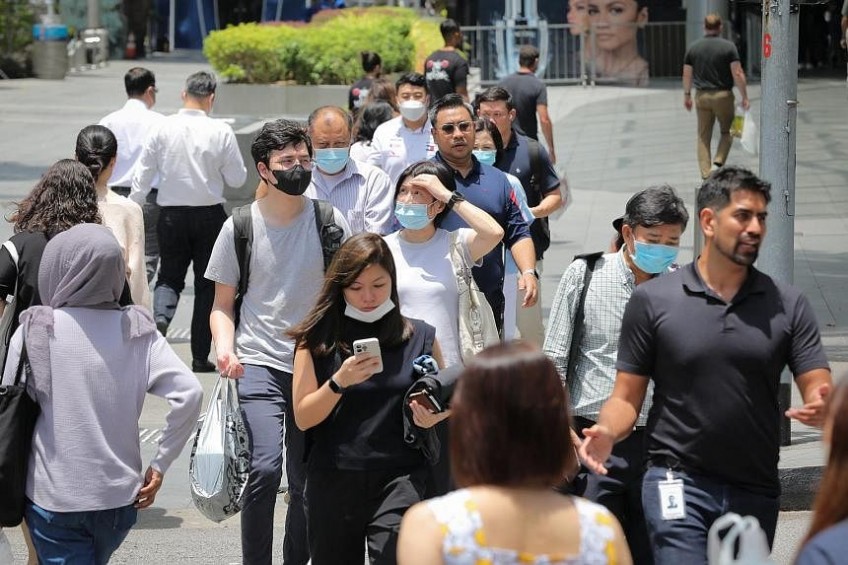35% to 40% increase in Covid-19 cases week-on-week, says MOH


SINGAPORE - There has been a 35 to 40 per cent increase week-on-week in coronavirus cases over the past few days, the Ministry of Health (MOH) said on Friday, in a fresh warning as the nation gets used to treating the virus as an epidemic.
Driven primarily by an increase in infections by the Omicron variant BA.2.75, which account for about a quarter of all daily infections, this translates to 900 to 1,000 more cases every day, MOH said.
It said higher numbers of cases are expected over the next few weeks. It continues to monitor the situation, and urged those who have not received their booster shots to do so.
But it added: "Thus far, there has been no indication that the increase in cases has led to more severe diseases, and there has been no significant impact on our healthcare system due to the higher number of daily infections," it added.
"There has been no evidence of increased disease severity associated with BA.2.75 in the international literature or in our local context."
[[nid:598781]]
MOH flagged two underlying changes in local infection patterns that it said requires more attention.
First, there has been a higher proportion of reinfections, increasing from 6 per cent of all reported cases in the beginning of September to 10 per cent this week, although these still account for only a small proportion of the rise in cases.
The second, the increase in infections by the Omicron variant BA.2.75, is the more important change.
It is the main driver for the higher number of cases, and is now circulating more widely in the population, due to the relaxing of most Covid-19 rules and more social mixing and gatherings.
MOH urged the public to continue to exercise personal and social responsibility, as well as caution, such as wearing masks when in crowded places, or when visiting or interacting with vulnerable persons.
Those who are unwell should continue to stay at home and avoid going out. If they feel unwell when out or in the workplace, they should go home immediately to rest or see a doctor, MOH said.
This article was first published in The Straits Times. Permission required for reproduction.